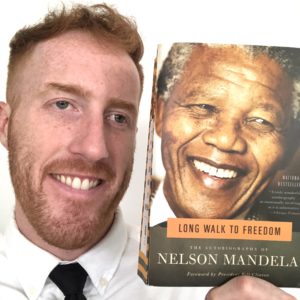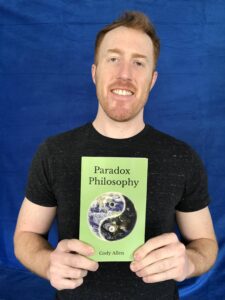 The European global expansion that started in the 15th century brought a destructive and oppressive centuries-long tide of colonization to the rest of the world. From Africa to India to North and South America, the white European travelers saw land and people that were different from themselves, and, in a stunning move of incomprehensible hubris, declared these things their own. Similar to many freedom fighters around the world, Nelson Mandela dedicated his life to breaking these chains of oppression in his home country of South Africa.
The European global expansion that started in the 15th century brought a destructive and oppressive centuries-long tide of colonization to the rest of the world. From Africa to India to North and South America, the white European travelers saw land and people that were different from themselves, and, in a stunning move of incomprehensible hubris, declared these things their own. Similar to many freedom fighters around the world, Nelson Mandela dedicated his life to breaking these chains of oppression in his home country of South Africa.
From a young age, Mandela was raised to be an advisor to the local African chief in his native Transkei region of South Africa. Because of this, he was allowed the privilege of education. He began studying law at the age of 25 at the University of Witwatersrand and was the only black student. That same year, he joined the African National Congress, a group that would be the centerpiece of the political drama of his life. The ANC was the main political organization opposed to the government’s policies of apartheid, which literally translates to ‘apartness,’ and “represented the codifications in one oppressive system of all the laws and regulations that had kept Africans in an inferior position to whites for centuries.” The ANC’s stated goal was a racially desegregated country with equal voting rights for all citizens. They called for an end to the government’s racist and oppressive laws and practices.
Along with his longtime colleague Oliver Tambo, Mandela opened the first black owned and operated law firm in the capital city of Johannesburg. The two men were swamped with clients from the start, being the main choice for politically oppressed black people looking to challenge the white government’s unfair treatment of them in open court. His years spent arguing cases on behalf of his clients proved to him the realities of the system within which he was operating. “As a student, I had been taught that South Africa was a place where the rule of law was paramount and applied to all persons, regardless of their social status or official position. I sincerely believed this and planned my life based on that assumption.” Sadly, his career as a lawyer showed him a truth he was not prepared for—that there was a wide difference between what was taught in the lecture room and what occurred in the courtroom. “I went from having an idealistic view of the law as a sword of justice to a perception of the law as a tool used by the ruling class to shape society in a way favorable to itself. I never expected justice in court, however much I fought for it, and though I sometimes received it.”
In 1960, the government declared the ANC (and various other defiant organizations) illegal, and Mandela was forced to live underground as an outlaw in his own country. He was eventually caught and arrested in 1963 and sentenced to life in prison.
Famously, he served only 27 of those years, 18 of them in a small cell on Robben Island (located a couple miles off the coast of Cape Town.) “I could walk the length of my cell in three paces” he remembers, and “when I lay down, I could feel the wall with my feet and my head grazed the concrete at the other side.” Still, even within the confines of prison walls, the struggle continued. Mandela fought for and slowly received better prison conditions while continuing to advise the freedom fighters on the outside.
During the decades of his imprisonment, the world slowly began to take notice of the South African struggle. Sanctions by the U.N. and other political pressures mounted, and in February of 1990, Mandela was set free. Within a few years of his release, the ANC (along with several other prominent organizations) successfully campaigned the current government for a new constitution and system of democracy for the people. Huge numbers of blacks, Indians, and other minorities voted for very first time in their lives, and in 1994 Nelson Mandela became the first democratically elected president in South Africa’s history. His election officially ended three and a half centuries of European colonialism and oppression.
The United States fought a bloody and violent war for their independence from Europe in the late 1700’s. Mahatma Gandhi fought a spiritual war of non-violence and gained India’s independence in 1947. These centuries saw many countries achieve independence from their oppressors, from Angola gaining independence from Portugal in 1975 to Venezuela declaring independence from Spain in 1811. While Mandela’s struggle for freedom is a truly inspiring one, it is sadly not a unique one. “Freedom is indivisible,” he wrote towards the end of his autobiography, “the chains on any one of my people were the chains on all of them, the chains on all of my people were the chains on me.”


